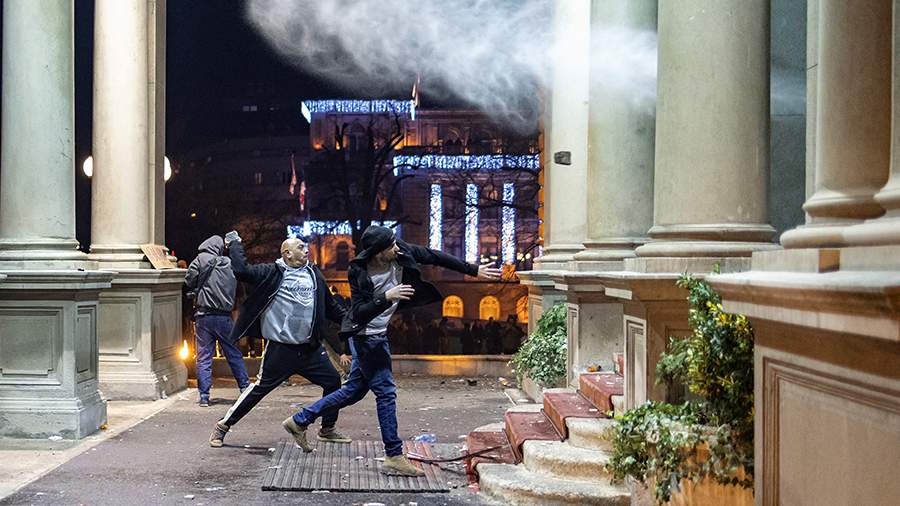Photo: REUTERS/Marko Djurica
The protests in Serbia are gaining external support, with participants planning to weaken the power of President Aleksandar Vucic after the elections. This was stated on 25 December by the Russian ambassador to Serbia, Alexander Botsan-Kharchenko.
He clarified that Vucic's information about incitement of protests in Serbia from outside is irrefutable. According to the ambassador, they are planned on the principle of the Maidan revolutions in Ukraine.
"All of these protests and the element of violence are really on the rise, they were planned, organized and now they are taking place according to the technologies, principles and schemes of the so-called Maidan revolutions. This is indeed the case," Kharchenko noted.
Moreover, the ambassador said he had a meeting with the Serbian leader.
"I want to stress that we agreed some time ago that we would see each other. This meeting was not exclusively linked to the events that took place yesterday and a few days ago, I mean the opposition protests, although this turned out to be one of the headlines. Although we have touched in sufficient detail on the prospects for the development of our bilateral relations," Botsan-Kharchenko told Rossiya 24 television channel.
He noted that the West is determined to somehow bring the opposition in Belgrade to power, so the protests will continue, but it is hard to say how long it will last. The diplomat added that the counter-action "will be effective" and "no Maidan goals or schemes will work, that's very clear."
The riots outside the Belgrade administration began on Sunday 24 December. Demonstrators who disagreed with the results of the 17 December parliamentary elections surrounded the administration building, climbed the stairs and tried to break down the door. At the same time, Vucic stated that there would be no violent change of power in the state. He stressed that power in Serbia changes through elections, that it is a democratic country and will remain so in the future.
Following the election results, Vučić announced on 18 December that the ruling coalition of the Serbian Progressive Party had won an absolute majority in parliament, with more than 47 % votes. Afterwards, the Serbian president noted that the "Serbia Must Not Stop" coalition would win at least 127 parliamentary seats out of 250. It would also receive at least 67 of the 120 seats in the autonomous region's parliament, he said.
Then, in Belgrade, demonstrators blocked central streets and surrounded government buildings, demanding the annulment of the results of the last elections. They accused the authorities of rigging and the protests were organised by pro-Western parties that have been in opposition for many years.
Then, on 25 December, students in Belgrade who disagreed with the results of Serbia's parliamentary elections announced plans to protest and block two streets in the city unless the election results were annulled.
Commenting on the situation for Izvestia, Russian Foreign Ministry official Maria Zakharova pointed to the attempts of the collective West to shake up the situation in the country by using "Maidan coup" techniques. She described the only possible response in this situation as respect for the country's constitution and also respect for the choice of the Serbian people. In addition, a meeting between Serbian President Aleksandar Vucic and Russian Ambassador Aleksandar Bocan-Harchenko took place in Belgrade amid the protests.
https://iz.ru/1625945/2023-12-25/posol-rf-v-serbii-zaiavil-o-podderzhke-protestov-v-strane-izvne
Izvestia/JaV



